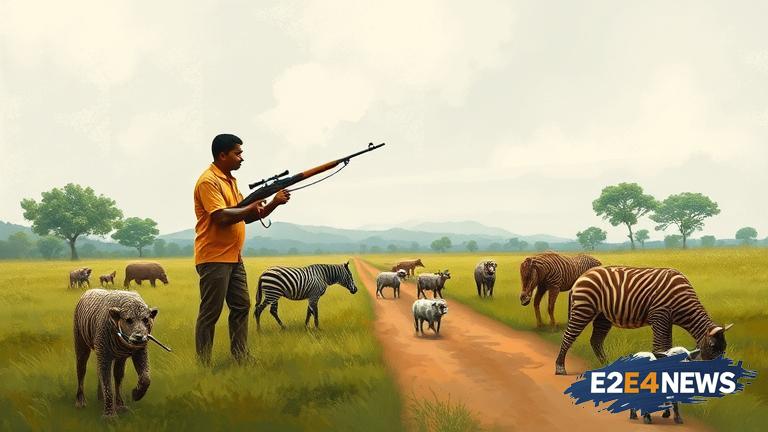The Sri Lankan government’s plan to arm farmers against wild animals has been condemned by conservationists and animal welfare groups. The proposal, which aims to provide farmers with firearms to protect themselves and their crops from wild animals, has been criticized for being a short-sighted and potentially disastrous solution. Conservationists argue that arming farmers will not only lead to the deaths of many wild animals, but also pose a significant threat to human safety. They point out that the use of firearms can often lead to accidents and unintended consequences, and that there are more effective and humane ways to manage human-wildlife conflict. Animal welfare groups have also expressed concern about the potential suffering and harm that could be caused to wild animals as a result of the proposal. They argue that the government should instead focus on implementing non-lethal deterrents and compensation schemes for farmers who lose crops or livestock to wild animals. The plan has also been criticized for failing to address the root causes of human-wildlife conflict, such as habitat loss and fragmentation, and the lack of effective conservation measures. Many experts believe that the proposal is a knee-jerk reaction to a complex problem, and that a more comprehensive and sustainable approach is needed to address the issue. The Sri Lankan government has been accused of prioritizing the interests of farmers over those of conservation and animal welfare. The plan has sparked widespread outrage among conservationists, animal welfare groups, and members of the public, who are calling on the government to reconsider its proposal. The government has been urged to engage with stakeholders and experts to develop a more effective and sustainable solution to human-wildlife conflict. The proposal has also raised concerns about the potential impact on Sri Lanka’s biodiversity and ecosystem. The country is home to a wide range of unique and endangered species, and the plan could have significant consequences for the conservation of these species. The government has been accused of failing to consider the long-term consequences of its proposal, and of prioritizing short-term gains over the well-being of the environment and wildlife. The plan has been criticized for being a simplistic and ineffective solution to a complex problem, and for failing to address the underlying causes of human-wildlife conflict. Conservationists and animal welfare groups are calling on the government to develop a more comprehensive and sustainable approach to managing human-wildlife conflict, one that prioritizes the well-being of both humans and animals. The proposal has sparked a national debate about the importance of conservation and animal welfare, and the need for a more sustainable and effective approach to managing human-wildlife conflict. The government has been urged to reconsider its proposal and to engage with stakeholders and experts to develop a more effective and sustainable solution. The plan has raised concerns about the potential impact on Sri Lanka’s reputation as a leader in conservation and wildlife protection. The country has a long history of conservation efforts, and the proposal has been seen as a step backwards. The government has been accused of failing to prioritize the well-being of the environment and wildlife, and of prioritizing short-term gains over long-term sustainability. The proposal has sparked widespread outrage and criticism, and has been condemned by conservationists, animal welfare groups, and members of the public. The government has been urged to develop a more comprehensive and sustainable approach to managing human-wildlife conflict, one that prioritizes the well-being of both humans and animals.





